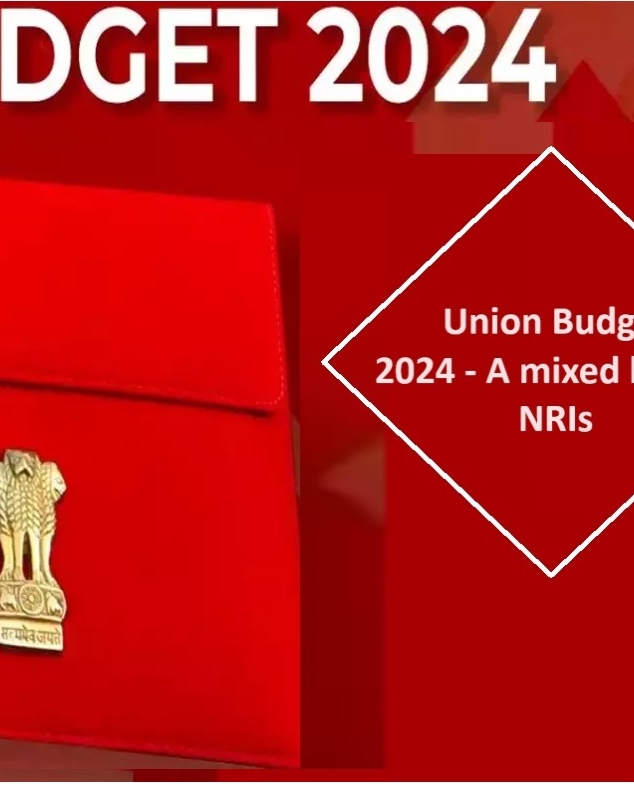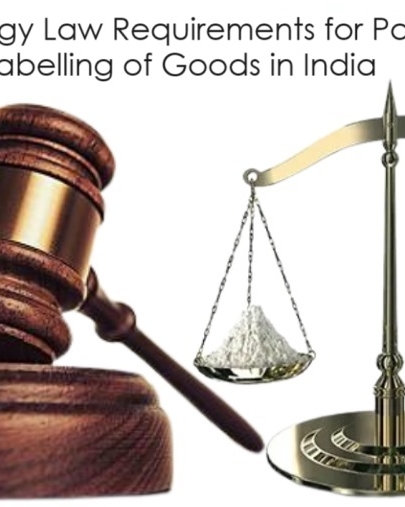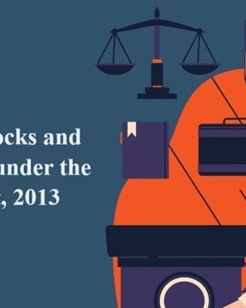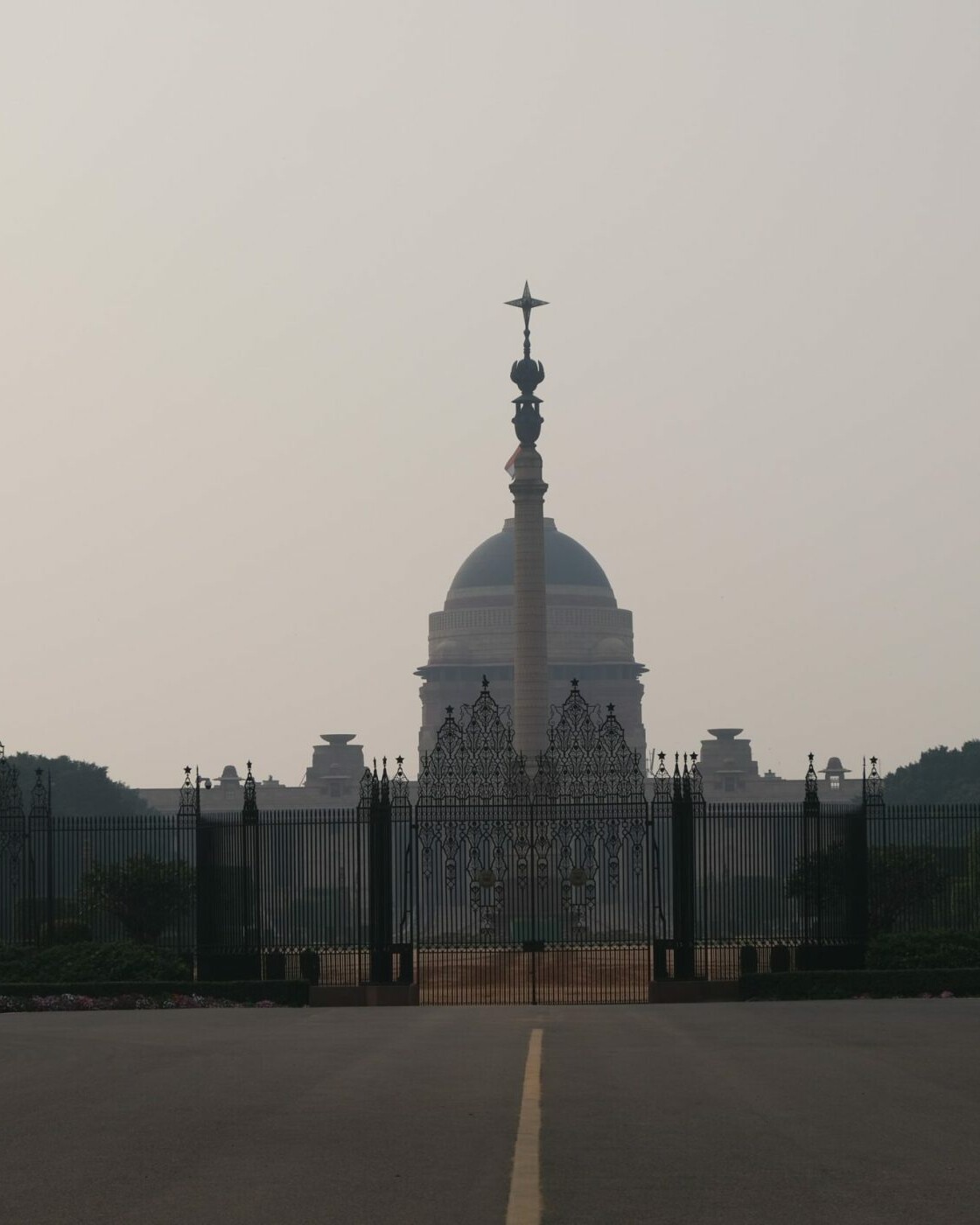
Highlights:
Corporate Brief
- Notification dated 02.08.2023 issued by Ministry of Corporate Affairs (“MCA”) on the Companies (Incorporation) Second Amendment Rules, 2023.
- Circular dated 03.08.2023 issued by Securities and Exchange Board of India (“SEBI”) regarding offer for Sale framework for sale of units of Real Estate Investment Trusts (REITs) and Infrastructure Investment Trusts (InvITs).
- Circular dated 04.08.2023 issued by SEBI regarding validity period of approval granted by SEBI to Alternative Investment Funds (AIFs) and Venture Capital Funds (VCFs) for overseas investment.
- Updates dated 04.08.2023 in Master Circular dated 31.07.2023 issued by SEBI for Online Dispute Resolution.
- Circular dated 07.08.2023 issued by SEBI regarding transactions in Corporate Bonds through Request for Quote (RFQ) platform by FPIs.
- Circular dated 09.08.2023 issued by SEBI regarding Reduction of timeline for listing of shares in Public Issue from existing T+6 days to T+3 days.
- Circular dated 11.08.2023 issued by SEBI regarding timeline for the Exit Option Window Period for Change in Control of AMC.
- Notification dated 18.08.2023 issued by RBI on Fair Lending Practice – Penal Charges in Loan Accounts.
- Notification dated 18.08.2023 issued by RBI on Review of Regulatory Framework for IDF-NBFCs.
- General Circular dated 23.08.2023 issued by MCA regarding condonation of delay in filing of Form-3, Form-4 and Form-11 under section 67 of Limited Liability Partnership Act, 2008 read with section 460 of the Companies Act, 2013- reg.
- Circular dated 24.08.2023 issued by SEBI mandating additional disclosures by Foreign Portfolio Investors (FPIs) that fulfil certain objective criteria.
RERA Brief
- Notice dated 01.08.2023 issued by Real Estate Regulatory Authority, Bihar (“Bihar RERA”) regarding disclosure of division of share of the project through an Affidavit.
- Press Release dated 03.08.2023 issued by Real Estate Regulatory Authority, Uttar Pradesh (“UP RERA”) regarding suo moto action against non-compliance of UP RERA order by promoter.
- Office Order dated 08.08.2023 issued by Real Estate Regulatory Authority, Bihar regarding SOP for dealing with the Projects where the date of completion has been exceeded and Project has come under lapsed category.
- Circular dated 11.08.2023 issued by Real Estate Regulatory Authority, Goa (“Goa RERA”) regarding adherence to model format of Agreement for Sale (AFS).
- Order dated 19.08.2023 issued by Real Estate Regulatory Authority, Kerala (“Kerala RERA”) regarding display of QR code in every project promotion advertisement.
NCLT Brief
- M/s IFCI Ltd. Vs. Sutanu Sinha (Comp App (AT) (CH) (Ins) No. 108/2023)
Litigation Brief
- High Courts should not entertain Writ Petitions in Commercial matters in case of existence of an alternative remedy
- Stamping out Uncertainty: Delhi High Court’s Ruling on Appointment of Arbitrators Vis-À-Vis Unstamped Arbitration Agreements
- Decoding the meaning of “Commercial purpose” in Consumer Protection Act
Corporate Brief
The Companies (Incorporation) Second Amendment Rules, 2023.
- The Ministry of Corporate Affairs has issued the Companies (Incorporation) Second Amendment Rules, 2023. These rules introduce amendments to Form No. RD-1 in the Companies (Incorporation) Rules, 2014. Vide said Amendment revised Form No. RD-1 has been introduced which is to be used by companies for filing application to Central Government (Regional Director) for approval of Compromises, Arrangements, Amalgamations and conversions.
Circular dated 03.08.2023 issued by Securities and Exchange Board of India (“SEBI”) regarding offer for Sale framework for sale of units of Real Estate Investment Trusts (REITs) and Infrastructure Investment Trusts (InvITs).
- SEBI vide its Circular dated 03.08.2023, introduced a comprehensive framework for Offer for Sale (OFS) of shares, including units of Real Estate Investment Trusts (REITs) and Infrastructure Investment Trusts (InvITs) through stock exchange mechanisms. In response to market feedback, Paragraph B of the said circular has been amended to permit OFS for units of privately listed InvITs.
Circular dated 04.08.2023 issued by Securities and Exchange Board of India (“SEBI”) regarding validity period of approval granted by SEBI to Alternative Investment Funds (AIFs) and Venture Capital Funds (VCFs) for overseas investment.
- In accordance with SEBI Circular No. SEBI/VCF/Cir no. 1/98645/2007 dated 09.08.2007, and SEBI Master Circular No. SEBI/HO/AFD/PoD1/P/CIR/2023/130 dated 31.07.2023, both Venture Capital Funds (VCFs) and Alternative Investment Funds (AIFs) were granted a six-month time limit from SEBI’s prior approval date for investing in offshore venture capital undertakings. If this limit was not utilized within six months, SEBI could allocate the unutilized limit to other applicant AIFs/VCFs.
- However, as per recommendations from the Alternative Investments Policy Advisory Committee, this circular reduces the time limit for overseas investments by AIFs/VCFs from six to four months. This change aims to enhance the efficient utilization of allocated limits, ensuring quicker availability to the AIF industry if unutilized. These provisions apply to overseas investment approvals granted by SEBI after the circular’s issuance.
Updates dated 04.08.2023 in Master Circular dated 31.07.2023 issued by Securities and Exchange Board of India (“SEBI”) for Online Dispute Resolution.
- The Master Circular for Online Dispute Resolution dated 31.07.2023 has been updated as on 04.08.2023 and these updates introduce several key changes to the existing framework. The specific amendments carried out in the said Master Circular may be referred to at the link below:
Circular dated 07.08.2023 issued by Securities and Exchange Board of India (“SEBI”) regarding transactions in Corporate Bonds through Request for Quote (RFQ) platform by FPIs
- In an effort to enhance liquidity on RFQ platform vis-avis trading in corporate bonds by FPIs, SEBI has introduced new requirements for Foreign Portfolio Investors (FPIs).
- As per this circular, FPIs are now required to conduct at least 10% of their total secondary market trades in Corporate Bonds by value by placing/seeking quotes on the Request for Quote (RFQ) platform of stock exchanges on a quarterly basis.
- This requirement is effective from October 1, 2023.
Circular dated 09.08.2023 issued by Securities and Exchange Board of India (“SEBI”) Reduction of timeline for listing of shares in Public Issue from existing T+6 days to T+3 days.
- SEBI vide its circular dated 09.08.2023, introduces a significant change in the timeline for listing of shares in Public Issue.
- Following consultations with market participants and public feedback, SEBI has decided to reduce the time taken for listing of specified securities after the closure of public issue to 3 working days (T+3 days) as against the present requirement of 6 working days (T+6 days); ‘T’ being issue closing date. The T+3 listing timeline is also required to be appropriately disclosed in the Offer Documents of public issues.
- Detailed instructions are provided for Direct Bank ASBA and Syndicate ASBA applications, including PAN verification.
- The said circular also specifies the applicability dates, with voluntary adoption starting from September 1, 2023, and mandatory adoption from December 1, 2023. It modifies the timelines prescribed in previous SEBI circulars, ultimately streamlining the listing process for specified securities in public issues to T+3 days.
Circular dated 11.08.2023 issued by SEBI regarding timeline for the Exit Option Window Period for Change in Control of AMC.
- This circular addresses the timeline for the exit option window period in the event of a change in control of an Asset Management Company (AMC).
- Following recommendations of the Mutual Funds Advisory Committee (MFAC), para 17.8.1 (III) of the SEBI Master Circular no. SEBI/HO/IMD/IMD-PoD-1/P/CIR/2023/74 issued on May 19, 2023 is modified vide this circular. Unitholders are now provided an option to exit on the prevailing Net Asset Value (NAV) without any exit load within a time period not less than 15 calendar days from the date of communication and in cases of change in control leading to consolidation or merger of schemes, within a time period not less than 30 calendar days from the date of communication.
- All other provisions in the master circular remain unchanged, and AMCs are advised to implement these changes within one month from the date of this circular.
Notification dated 18.08.2023 issued by RBI on Fair Lending Practice – Penal Charges in Loan Accounts.
- The Reserve Bank of India (RBI) has issued this notification to all Commercial Banks, Primary (Urban) Co-operative Banks, Non-Banking Financial Companies (NBFCs), and Financial Institutions regarding fair lending practices and penal charges in loan accounts.
- The said notification dated 18.08.2023 may be referred to at the link below:
https://www.rbi.org.in/Scripts/NotificationUser.aspx?Id=12527&Mode=0
Notification dated 18.08.2023 issued by RBI on Review of Regulatory Framework for IDF-NBFCs
The RBI notification dated 18.08.2023 introduced a review of regulations for Infrastructure Debt Fund-NBFCs (IDF-NBFCs) to enhance their role in infrastructure financing and align them with existing NBFC regulations. The revised regulatory framework for IDF-NBFCs is provided in the Annex. These guidelines shall come into effect from the date of this circular.
- The said notification outlines fund-raising options, exposure limits, risk weights, and requirements regarding sponsors and tripartite agreements. It also applies income recognition, asset classification, and provisioning norms similar to NBFC-Investment and Credit Companies (NBFC-ICCs) to IDF-NBFCs. It also provides guidelines for NBFCs interested in sponsoring Infrastructure Debt Fund-Mutual Funds (IDF-MFs).
- The said notification dated 18.08.2023 may be referred to at the link below:
https://www.rbi.org.in/Scripts/NotificationUser.aspx?Id=12528&Mode=0
General Circular dated 23.08.2023 issued by MCA regarding condonation of delay in filing of Form-3, Form-4 and Form-11 under section 67 of Limited Liability Partnership Act, 2008 read with section 460 of the Companies Act, 2013- reg.
- The Ministry has received representations regarding challenges faced by certain Limited Liability Partnerships (LLPs) in filing Form-3, Form-4, and Form-11 due to various reasons, including discrepancies in electronic registry data.
- To address these difficulties faced by the LLPs and as part of Government’s constant efforts to promote ease of doing business, the Ministry, in exercise of its power under section 67 of the Limited Liability Partnership Act, 2008, has decided to grant one-time relaxation in additional fees to those LLPs who could not file the Form-3, Form-4 and Form-11 within due date and provide an opportunity to update their filings and details in Master-data for future compliances.
- The salient features include:
- The filing of Form-3 and Form-4 without additional fee shall be applicable for the event dates 01.01.2021 and onwards. For events dated prior to 01.01.2021, these forms can be filed with 02 times and 04 times of normal filing fees as additional fee for small LLPs and Other than small LLPs respectively.
- The filing of Form-11 without additional fee shall be applicable for the financial year 2021-22 onwards. Form-11 for previous years (prior to financial year 2021-22) can be filed with 02 times and 04 times of normal filing fee as additional fee for small LLPs and Other than small LLPS respectively.
- These forms shall be available for filing from 01.09.2023 onwards till 30.11.2023 (both dates inclusive).
- The LLPs availing the scheme shall not be liable for any action for delayed filing of the Form-3, Form-4 and Form-11.
Circular dated 24.08.2023 issued by SEBI mandating additional disclosures by Foreign Portfolio Investors (FPIs) that fulfil certain objective criteria
- SEBI’s circular dated 24.08.2023, mandates additional disclosures for Foreign Portfolio Investors (FPIs) meeting specific criteria.
- In order to obtain granular information of persons having any ownership, economic interest, or control in some objectively identified FPIs, Regulations 22 (6) and 22(7) have been inserted in the SEBI (FPI) Regulations, 2019 (‘FPI Regulations’), vide SEBI (Foreign Portfolio Investors) (Second Amendment) Regulations, 2023, notified on August 10, 2023.
- In terms of Regulations 22 (6) and 22 (7) of the FPI Regulations, the criteria rendering FPIs liable to provide information or documents in relation to the persons with any ownership, economic interest, or control, in the FPI, and the manner for providing the same is being specified in this circular.
- The said circular dated 24.08.2023 may be referred to at the link below:
RERA Brief
Notice no: 115 dated 01.08.2023 issued by Bihar RERA regarding disclosure of division of share of the project through an Affidavit.
As per Notice issued by the Bihar RERA on 01.08.2023, in order to avoid litigation regarding share of promoter and landowner in the project available for selling and marketing, a notice was earlier issued by Bihar RERA on 01.07.2022 vide No. 60 for disclosure of share of promoter in the project through an affidavit. However, it was noticed that in some cases promoters submit the memorandum of division of share signed between promoter and landowners on stamp paper in compliance of one of the conditions of development agreement.
As per this Notice dated 01.08.2023, promoter would henceforth, submit the details of division of share of the project available for marketing and selling on Affidavit duly executed between promoter and landowner/s in a particular format with the application to be submitted for the registration of project. The said direction has come into force with immediate effect for all the applications to be submitted henceforth for registration. The format for such declaration is also attached with the said notice.
Press Release dated 03.08.2023 issued UP RERA regarding suo moto action against non-compliance of UP RERA order by promoter.
As per the press release dated 03.08.2023, the ADJ Bench of the UP RERA, in the interest of homebuyers, exercised its statutory rights and itself got the sale deed executed and registered in favour of the complainant homebuyer where after constant persistence, the promoter was not registering the sale deed in favour of the aggrieved homebuyer.
This step would send a message to the promoters that UP RERA will continue to fulfil the responsibility of safeguarding the interest of the homebuyers by taking actions as per the rules formulated.
As per the UP RERA, it is the responsibility of UP RERA to protect the transparency between the promoter and the homebuyer and it shall continue to enforce the provisions of the Real Estate (Regulation and Development) Act, 2016 (“RERA Act”) in the state.
Office Order: dated 08.08.2023, issued by Bihar RERA regarding SOP for dealing with the Projects where the date of completion, as mentioned in the application for registration, has been exceeded, Project has come under lapsed category and application for extension is not submitted within time.
As per Office Order dated 08.08.2023 of Bihar RERA, it was acknowledged that there have been various instances where the promoter of a real estate project failed to renew the validity of a project registered with RERA within the stipulated time. To safeguard the interest of the allottees in such an instance, the Authority had earlier offered a General Amnesty Scheme and allowed the promoters to apply for extension with additional amount of fees up to a maximum period of delay of 2 (two) years.
The validity of the Amnesty Scheme was over and therefore, Bihar RERA had to streamline a procedure to be adopted by the office for dealing with such applications that are received for extension.
As per the SOP issued by the Authority, which comes into force with immediate effect, if the promoter submits an application, in prescribed format, for extension stating the compelling reasons / circumstances for failure to complete the project on time and satisfy the Authority in believing that the project is near completion, then such case would be referred firstly to the Legal Section.
All applications received from promoters:
- would contain the consent of 2/3rd (two-third) of allottees of the project that they want to get the remaining development work to be carried out by the same promoter and they have no objection if the period of completion is extended.
- be examined for any pending complaint against the project. If any complaint case is pending, then the decision of the Presiding Officer will be given deciding whether such project needs to be extended or not.
However, if no complaint case is pending:
- The said matter would be referred to compliance wing to check whether the obligations are being met by the promoter and the requisite reports are being reported regularly. The department ensures the compliance and the deposition of the requisite penalty amount.
- The compliance of the conditions shall be examined by the Bihar RERA along with the examination of the application documents as prescribed under the relevant provisions of the RERA Act along with the Rules made thereunder being duly submitted.
- The department will then examine the exceptional circumstances as pleaded by the promoter in the application along with other compliances required.
- The map of the project will also be an essential parameter to be considered by the department.
- After being satisfied of the above conditions, the period of delay (which was limited to 2 years under the General Amnesty Scheme may then be extended.
- For delay of every quarter, promoter needs to submit additional fees for delay at the rate of 50% (fifty per cent) of the registration fees.
The final extension will be provided by the Authority only after being satisfied of whether the time proposed by the promoter to complete the project is reasonable or not. It has been clarified in the said Office Order dated 08.08.2023 that it shall not be interpreted to mean that in every case a promoter who fails to complete the project under the extended time under section6 would get further extension as of right to complete the remaining development work.
Circular No. No: 1/RERA/Circulars/2019/798 dated 11.08.2023 issued by Goa RERA regarding adherence to model format of Agreement for Sale (AFS).
As per Circular dated 11.08.2023, it has been mentioned that Goa RERA has come across several complaints that some builders are incorporating restrictive clauses in the AFS and are deviating from Model AFS Rules notified by the Ministry of Housing and Urban Affairs, New Delhi.
It was further mentioned in the said circular that despite some leeway provided, depending upon circumstances of each case, by the Rule 10(1) and 10(2) under Agreement for Sale along with explanatory note to the Model Form of Agreement notified by Goa RERA, there are certain mandatory clauses which need to be strictly retained by the promoters in the AFS executed between the promoter and the Allottee. Also, any change in the agreement found contrary to or inconsistent with any provisions of the Act, Rules and Regulations would be void-ab-initio.
In view of the same, Goa RERA, vide its circular dated 11.08.2023 has directed that all existing as well as prospective promoters under the Goa RERA to adhere to the Model format of AFS.
Order No. K-RERA/T3/2127/2023 dated 19.08.2023 issued by Kerala RERA regarding display of QR code in every project promotion advertisement.
As per Order of Kerala RERA dated 19.08.2023, in exercise of the powers conferred on the Authority under Section 37 of the RERA Act, i.e., to issue directions to promoter, real estate agents and allottees from time to time, the Kerala RERA has issued the following direction:
- The promoter shall prominently display QR code on each and every project advertisement, 01.09.2023 onwards.
- Such QR Code must be legible, readable and detectable with software application.
- The QR Code of each registered project is made available for download in the promoters dashboard located close to the certificate download section.
- Such QR Code must be published besides the Kerala RERA Registration Number and the website address.
- Mediums of advertisements on which it applies include newspaper, magazines, journals, printed flyers, brochures, catalogues, leaflets, prospectus, standees on project sites, sales office, websites, webpages, social media platforms or any other medium where QR Code can be published.
NCLT Brief
Case Referred- M/s IFCI Ltd. Vs. Sutanu Sinha (Comp App (AT) (CH) (Ins) No. 108/2023)
Issue: Whether the Compulsorily Convertible Debentures (“CCD”) would be treated as equity or as a debt instrument for the purpose of the Insolvency and Bankruptcy Code (“Code”) and whether the amount due and payable from the CCD would fall within the definition of ‘Financial Debt’ as defined under the Code?
Brief Facts of the Case
IVRCL Limited (“IVRCL”) won a bid in April 2009 for undertaking construction, operation, and maintenance of a project under ‘National Highway Authority of India’ (“NHAI”). Pursuant thereto, a concession agreement was entered into between the subsidiary of IVRCL, i.e., IVRCL Chengapalli Tollways Limited (“Corporate Debtor”) and NHAI for the execution of the said project. Furthermore, IFCI Bank (“Appellant”) agreed to provide financial assistance to the Corporate Debtor for execution of the project through CCDs issued by the Corporate Debtor.
The Appellant had agreed to subscribe to CCDs amounting to Rs. 12.5 crores vide a ‘Debenture Subscription Agreement’ (“DSA”). The Corporate Debtor, IVRCL and the Appellant entered into a share buy-back agreement dated 14.10.2011, wherein the terms and conditions of the buy-back of aforementioned CCDs subscribed by the Appellant were mentioned. Furthermore, DSA empowered Appellant to sell the CCDs to a third party.
Vide order dated 20.04.2020, the National Company Law Tribunal, Hyderabad Branch (“NCLT”) initiated the Corporate Insolvency Resolution Process (“CIRP”) of IVRCL. Pursuant thereto, the Appellant filed a claim with the Resolution Professional of the Corporate Debtor; however, the same was rejected. Subsequently, the Appellant filed an application challenging the rejection of claim before the NCLT and the NCLT upheld the decision of the resolution professional rejecting the claim of the Appellant.
The NCLT held that the CCDs subscribed by the appellant was to be treated as equity and not as debt. The NCLT also held that the CCDs cannot acquire the status of debt on default because interest on CCDs is to be paid by the sponsor, i.e., IVRCL, the holding company of Corporate Debtor and the Corporate Debtor was not under any obligation to pay interest on the borrowing.
Aggrieved by the aforesaid order, the Appellant preferred an appeal before the National Company Law Appellate Tribunal, Chennai (“NCLAT”).
Observation and Decision of NCLAT
The NCLAT held that in the present case, the CCDs had matured before the initiation of CIRP proceedings of the Corporate Debtor. The NCLAT observed that it is evident from the record that the investment was in the form of debentures which would be converted into equity. Furthermore, the terms and conditions of the DSA and the parties intent did not specify anywhere that the instrument would acquire the nature of a financial debt in the occurrence of any event which was evident from the provisions of the Loan Agreement and the Concession Agreement executed between NHAI and the Corporate Debtor, which define equity to include CCDs as part of the Project’s equity component.
Thus, the NCLAT held that the CCDs are equity instruments and do not fall within the definition of Financial Debt as defined under Section 5(8) of the Code. Hence, the NCLAT dismissed the appeal.
Litigation Brief
High Courts should not entertain Writ Petitions in Commercial matters in case of existence of an alternative remedy
Case referred: M/S. South Indian Bank Ltd. & Ors. vs. Naveen Mathew Philip & Anr. etc. Civil Appeal No. 002861 – 002862 / 2023
The two-judge bench of Justice Sanjiv Khanna and Justice M.M. Sundresh held that in commercial matters, litigants cannot be permitted to bypass the route of approaching tribunals.
The Supreme Court had taken note of the issue of non-functional Debt Recovery Tribunals (DRTs) and Debt Recovery Appellate Tribunals (DRATs) and requested the relevant High Courts to handle cases falling under their jurisdiction through Article 226 of the Indian Constitution. In the present case, the Borrowers challenged a Notice issued by the Bank under Section 13(2) of the SARFAESI Act by filing a writ petition before the Kerala High Court. The High Court instructed the Bank to consider the Borrowers’ repayment proposal and allowed them to repay the dues in installments. However, the Borrowers failed to comply with the arrangement. Consequently, the Bank issued notices under Section 13(4) of the SARFAESI Act to the Borrowers in December 2021.
Due to the non-functioning of the DRT, the Borrowers filed another writ petition before the Kerala High Court, challenging the Notice under Section 13(4) of the SARFAESI Act and requesting the Bank to accept deferred payments. The High Court granted the Borrowers the opportunity to make deferred payments to the Bank within a period of 12 months. Subsequently, the Bank appealed to the Supreme Court, arguing that since an equally effective remedy was available, the extraordinary jurisdiction of the High Court under Article 226 of the Indian Constitution should not have been invoked.
The present appeal was filed before the Apex court by the Bank against the order of the High Court arguing that since an equally effective remedy was available, the extraordinary jurisdiction of the High Court under Article 226 of the Constitution of India could not have been invoked.
The Hon’ble Supreme Court in consideration of the aforesaid facts, observed that:
Although DRT was not functional at the time of filing the writ petitions by the Borrowers, it became functional from March 2022 and matters should have been relegated to the Tribunal by the High Court. When a right is created by a statute, which itself prescribes the remedy or procedure for enforcing the right or liability, resort must be had to that particular statutory remedy before invoking the discretionary remedy under Article 226 of the Constitution. More circumspection is required in a financial transaction, particularly when one of the parties would not come within the purview of Article 12 of the Constitution. This rule of exhaustion of statutory remedies is a rule of policy, convenience, and discretion.
The Hon’ble Supreme Court observed that the High Court has erred in ignoring the existence of alternate remedies under the Securitization and Reconstruction of Financial Assets and Enforcement of Security Interest Act, 2002 (SARFAESI Act) and wrongly exercised its discretionary power under Article 226 of the Constitution of India to resolve commercial disputes between a lender and a borrower.
Stamping out Uncertainty: Delhi High Court’s Ruling on Appointment of Arbitrators Vis-À-Vis Unstamped Arbitration Agreements
IN THE MATTER OF: Splendor Landbase Ltd. Vs. Aparna Ashram Society & Anr.
(Pronounced by the Hon’ble High Court of Delhi on 22.08.2023 in the ARB. P. 366 of 2021)
Facts:
- The Judgement has been passed in a batch of Petitions filed under Section 11 of the Arbitration & Conciliation Act, 1996 [‘A&C Act’] seeking appointment of an Arbitrator admittedly under unstamped / deficiently stamped arbitration agreements. The Delhi High Court ruling lays out the interplay between the Indian Stamp Act, 1899 [‘Stamp Act’] and the A&C Act in light of the judgment passed by the Hon’ble Supreme Court in the case of N.N. Global Mercantile (P) Ltd. Vs. Indo Unique Flame Ltd. (2023) 7 SCC 1.
- A major impediment dealt by the present case revolves around the issue as to whether an unstamped or insufficiently stamped contract / arbitration agreement, that ought to be mandatorily stamped under the Stamp Act, be impounded by the court if such a document is produced in evidence and the procedure thereof.
- The judgement also elucidates upon practical impediments faced by practitioners and parties alike, i.e., in a situation where an instrument is executed in one state and the document is presented in a proceeding under Section 11 of the A&C Act in another state, the local stamp laws of which state would be applicable on the instrument.
Issues before the Court:
- Whether it is incumbent on the petitioner to file the original of the duly stamped arbitration agreement/contract or a ‘true copy’ filed thereof would suffice?
- Whether it is permissible for the petitioner to pay the deficient stamp duty with penalty or whether it is mandatory for the court to send the concerned agreement/contract to the Collector for adjudication of proper stamp and penalty payable thereon?
- Whether the adjudication by the Collector under Section 40 of the Stamp Act can be made time bound?
- Whether the stamping of arbitration agreement/contract must conform to the local laws/stamping rate(s) prescribed at the place where the arbitration agreement/contract was executed and/or whether the same are required to conform to the relevant prescription at the place where the petition under Section 11 of the Arbitration and Conciliation Act, 1996 has been filed?
Court Observation and Findings:
- If the agreement is not properly / deficiently stamped, the court is mandated to impound the instrument in terms of the judgment passed by the Hon’ble Supreme Court in N.N. Global (supra).
- The Petitioner has to file the original instrument if the petition under Section 11 of the A&C Act is filed on the basis of unstamped/insufficiently stamped agreement. This is not a requirement when the agreement is duly stamped.
- The court, while considering a petition seeking appointment of an arbitrator, basis an unstamped/deficiently stamped arbitration agreement has the following two options:
(i) To send the impounded agreement to the Collector of Stamps for ensuring payment of deficit stamp duty with penalty. Thereafter, the instrument shall be admissible in evidence and it would be open for the court to act on that basis in the proceeding under Section 11 of the A&C Act. The court can also direct the Collector to complete the process in a time- bound manner.
(ii) Where the stamp duty payable is not in dispute, the court can direct the parties to deposit the requisite stamp duty along with penalty in the court itself. Thereafter, an authenticated copy of such instrument be sent to the Collector along with the amount so collected. If the Collector is aggrieved by the decision of the court as regards the duty and/or penalty payable, it would be open for the Collector to move the concerned Appellate Court under Section 61 of the Stamp Act.
- Regarding an instrument executed in one state but sought to be relied / acted upon and received in another state, the legal precedent set by the Supreme Court in the case of New Central Jute Mills Co. Ltd. v. State of West Bengal [AIR 1963 SC 1307] must be adhered to. According to the principles established in the aforementioned case, such an instrument should be stamped in accordance with the laws of the first state, and there is no need for further stamping in accordance with the laws of the second state if the stamp duty rates in the second state are same or lower than those in the first state. However, if the stamp duty rates in the second state are higher, the instrument will only require additional stamping for the excess amount based on the rates applicable in the second state.
CONCLUSION
The captioned judgment passed by the Hon’ble Delhi High Court answers a lot of questions which arose in the aftermath of the N.N. Global (supra) and proves to be a guiding beacon going forward in cases of appointment of an arbitrator under an unstamped / deficiently stamped arbitration agreement.
Decoding the meaning of “Commercial purpose” in Consumer Protection Act
CASE ANALYSIS: Rohit Chaudhary & Another vs. M/S Vipul Limited, (2023 SCC Online SC 1131)
Decided by Hon’ble Supreme Court on 06.09.2023
Factual Matrix:
- The Appellants planned to buy commercial space in the ‘Vipul World Commercial’ project in Gurugram, Haryana. They agreed to purchase shares from two sellers, paid the agreed amount, and had their names recorded as owners. The Respondents later demanded outstanding payments, which the Appellants paid promptly. The Appellants received a receipt and an allotment letter for ‘Vipul Business Park’ but were then reassigned a different plot without their consent.
- When the Appellants objected to this unilateral change, the Respondents threatened to forfeit their payments and cancel the allotment. The Respondents sent a buyer’s agreement to the Appellants, which they signed and returned. However, the Respondents failed to deliver possession of the premises within the agreed period of 24 months.
- Aggrieved by the lack of communication and action, the Appellants filed a complaint with the National Consumer Dispute Redressal Commission in New Delhi. However, the Commission dismissed the complaint applying the commercial purpose test, stating that the Appellants didn’t qualify as ‘consumers’ under Section 2(1)(d) of the Act because they were already engaged in business for their livelihood, and the property in question was not solely for self-employment purposes.
Issue in question:
Whether the Appellants in such case are the ‘Consumers’ and what is the meaning of “Commercial purpose” under the Consumer Protection Act, 1986?
Court’s Observations and Findings:
- In the present appeal, Hon’ble Supreme Court clarified that the definition of ‘Consumer’ under Section 2(1)(d) of the Act excludes individuals who purchase goods or services for resale or for large-scale profit-making activities. However, if a consumer complaint asserts that goods were bought for earning a livelihood, it should not be dismissed outright.
- The court emphasized that the decision to proceed with such a complaint should be based on the specific facts and circumstances of each case, and there is no fixed formula for determining whether a complainant falls within the definition of a ‘consumer’ under the Act.
- In this case, the Appellants had clearly stated in their complaint that they sought office space for self-employment and to run their business for their livelihood, not for resale or investment. The Court found the National Commission’s decision to be erroneous and not in line with the Act’s definition of a ‘consumer.’
- Considering that the dispute dated back to 2006 and that the Appellants had paid over Rs. 51 lakhs to the developer after which also the allotted office space was not delivered as per the agreed timeframe, the Apex Court directed the Respondent developer to refund the amount received from the Appellants with interest calculated at 12% per annum.
- This decision aimed to balance the equities and provide justice to the Appellants while considering the appreciated value of the asset, i.e., the office premises intended for sale to the Appellants.
- In conclusion, the Hon’ble Supreme Court allowed the appeal, overturned the NCDRC’s order, and instructed the Respondent developer to refund the amount along with interest to the Appellants who filed the complaint.
***
Disclaimer:
For private circulation to the addressee only and not for re-circulation. Any form of reproduction, dissemination, copying, disclosure, modification, distribution and/ or publication of this Newsletter is strictly prohibited. This Newsletter is not intended to be an advertisement or solicitation. The contents of this Newsletter are solely meant to inform and is not a substitute for legal advice. Legal advice should be obtained based on the specific circumstances of each case, before relying on the contents of this Newsletter or prior to taking any decision based on the information contained in this Newsletter. ZEUS Law disclaims all responsibility and accepts no liability for the consequences of any person acting, or refraining from acting, on such information. If you have received this Newsletter in error, please notify us immediately by telephone.
Copyright © 2014 ZEUS Law. All rights reserved. Replication or redistribution of content, including by caching, framing or similar means, is expressly prohibited without the prior written consent of ZEUS Law.






















